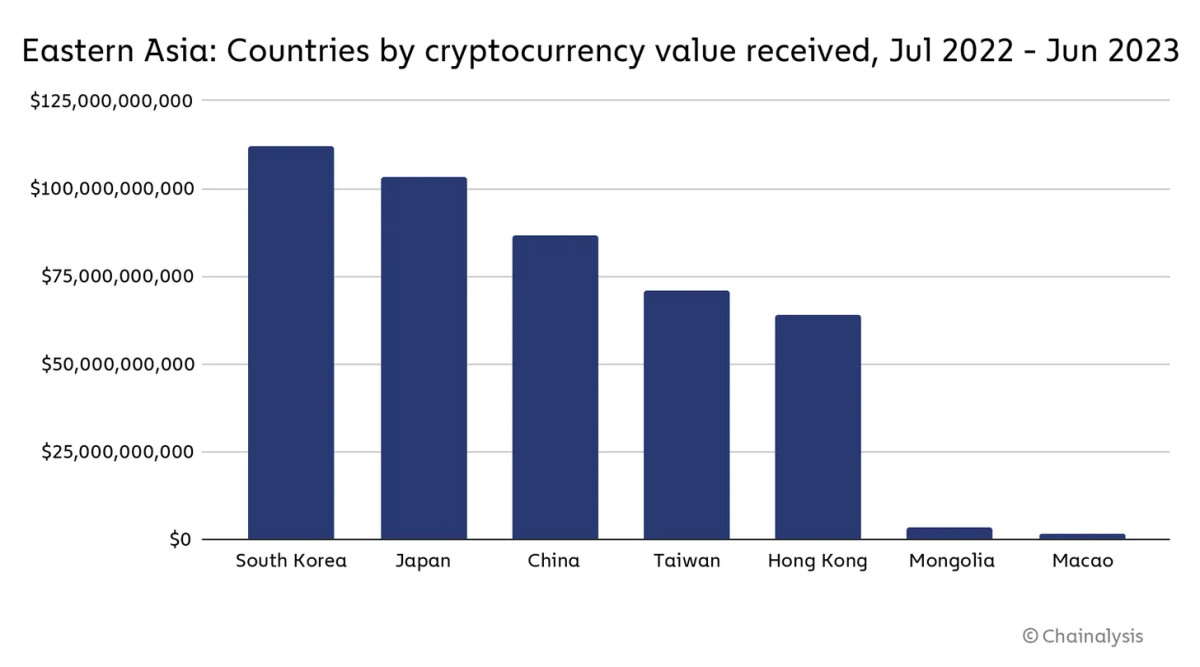Chinese financial institutions switch to Hong Kong’s new Bitcoin ETF

The following is an excerpt from the latest edition of Bitcoin Magazine Pro, Bitcoin Magazine’s premium markets newsletter. To be the first to get these insights and other on-chain Bitcoin market analysis delivered to your inbox, Subscribe now.

With Hong Kong’s Bitcoin ETF rapidly approaching, new applications have come from an unexpected source: mainland China’s largest traditional asset manager.
Hong Kong’s new ETF has been several months in the making and is generating quite a bit of interest in the global digital asset space. The spot creation model is not only a completely different protocol from the Bitcoin spot ETF style popularized in the United States, but is also an important stepping stone for ETF acceptance in East Asia. The total assets under management (AUM) of approved Hong Kong futures ETFs already exceeded $100 million in February, while spot ETFs have performed better in all countries where they are approved. This economic region, with both significant capital investment and rich international financial connections, makes Hong Kong a perfect candidate for a new testing ground for this market.
However, even the most optimistic interpretation of the situation did not predict the emergence of new players in this field. By the end of March 2024, a number of Hong Kong-based capital firms had expressed interest in some form or another in launching their own ETFs, but relatively few had actually submitted formal applications. This situation changed drastically on April 8 with a series of high-profile players from mainland China competing. Harvest Fund, with total AUM of over $230 billion, and Southern Fund, with over $280 billion, both submitted their own applications through their Hong Kong-based subsidiaries. Local media also reported that China Asset Management, which has $270 billion in AUM, has entered into an unspecified partnership with an existing Bitcoin ETF provider in the city through its subsidiary.
Considering that there are already signs of the ETF hype fading in the US market, news like this certainly comes as a breath of fresh air. Even though US ETF issuers like BlackRock and Fidelity have trillions of dollars in AUM, the sudden emergence of multi-billion dollar companies is nothing to scoff at. However, it is questionable how smoothly the interaction between these mainland companies and Hong Kong financial regulation will work in practice. Isn’t Bitcoin banned in China because it is used almost entirely underground among Chinese citizens? How long will these partnerships really last? As it turns out, the idea of a total ban has been somewhat exaggerated in the Western media. After all, if Bitcoin was purely contraband from China, why would Chainalytic report $90 billion in transactions in one year?

To be sure, mainland China has taken a harsher stance on Bitcoin in recent years. Following the 2021 Bitcoin mining ban, one of the world’s largest mining hubs dried up overnight. However, the apparent crackdown opens up many opportunities for the market. Essentially, the main goal of the Chinese authorities was to increase the barriers to entry and make it more frustrating and difficult for ordinary citizens to continue to access this market. Additionally, with many legitimate businesses unable to operate, Chinese Bitcoin users are given an implicit warning: “If you get scammed, don’t expect any help or sympathy from us.” Nevertheless, savvy advocates have found ways to continue using leaderless currencies. Quiet deals are clearly worth billions of dollars.
It is this same ambiguity that makes the development of these new ETFs so encouraging. Three of the largest asset managers across China have signed on to the project in quick succession, which is no small commitment. If these companies become ETF issuers, they will be tied to a business with record trading volumes and a broad international following. It’s not the first time a Chinese-funded company has invested heavily in a Bitcoin-related venture, but the mining hardware in remote Ethiopia is very different from the financial tools in the city, which is legally part of China. With this leap forward, these companies have found a way to legally become entangled with the Bitcoin world, an entanglement that will primarily include Chinese citizens as well.

Such a move could go a long way in showing investors and regulators alike that the world of Bitcoin is not something to be feared, but a very exciting opportunity. Hong Kong’s previously mentioned spot model means that new buyers must exchange their stored bitcoins for corresponding shares in an ETF, rather than simply purchasing them with fiat currency. In other words, there will be an undeniable direct link between high-profile domestic companies and trade that operates under the radar. Could this link finally convince party officials that Bitcoin has a place in China? Will ETF issuers attempt to influence and lobby for Bitcoin’s re-entry into the legal system? How will the complex relationship between China and Hong Kong affect the overall deal?
The Hong Kong side appears to be quite committed to its dream of creating a regional cryptocurrency hub. This is small potatoes compared to the news from HashKey Global, as it shows that regional banks as a whole are increasing their acceptance of the digital asset space. South China Morning Post On April 8, HashKey Group, a Hong Kong-based exchange that only trades Bitcoin and Ethereum, reported that it had launched a new “global” initiative with a Bermuda-based exchange. HashKey announced the plans at the Web3 Festival and the Bermuda operation will be just the first step in the ambitious undertaking. The long-term hope is to “overtake US-based cryptocurrency giant Coinbase in trading volume within five years.” It’s a very difficult order.
Still, Chief Operating Officer Livio Weng didn’t seem particularly worried. post “We have looked at their data and we don’t think it will be difficult”. He added that most global competitors are either “easy to use but not compliant” or “compliant but difficult to use.” Chinese regulatory difficulties have given his company a significant advantage in this department. It has been difficult to provide a practical and attractive service to customers while maintaining regulatory compliance, so easing restrictions globally will make HashKey a big fish in a small pond. For example, the Bermuda exchange is already set to offer nearly 20 more digital assets than its original Hong Kong operation. Chinese people living overseas are also a clear target group.
This kind of enthusiasm is certainly a bold statement in the Bitcoin world! Even in this chaotic market, the exchange’s top position will not easily fall. However, this kind of confidence was reportedly echoed by other attendees at the Web3 Festival, as the entire community was pinning its hopes on a rise in the price of Bitcoin. Mainland companies are showing a real willingness to enter the Bitcoin world through Hong Kong, with existing businesses in Hong Kong confident that they will be worth billions of dollars in a short period of time. Is it really that difficult to imagine that success here could change China’s entire paradigm?
It is for this reason that the soon-to-be-launched Bitcoin ETF in Hong Kong is highly anticipated by observers around the world. New changes to the same financial product can shake up the entire paradigm and revitalize ETFs internationally. But if China reverses its hostility toward Bitcoin, it could honestly be a much bigger disruption than the spot ETF itself. For this reason, we must carefully monitor developments in this field. Because the impact is likely to reverberate in some way. All signs are bullish for Bitcoin, and the next big opportunity could be right around the corner.


